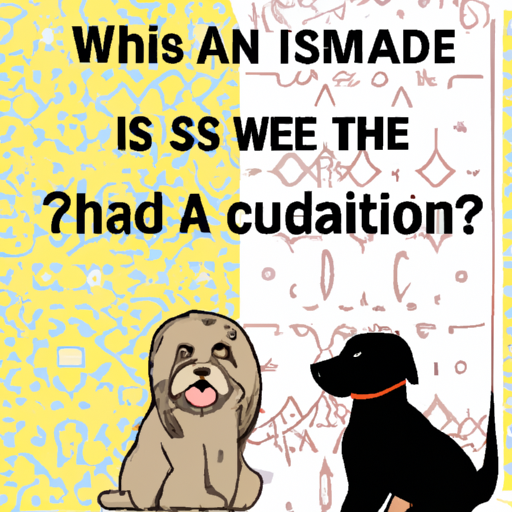“`markdown
Why are Dogs Haram but Not Cats
Understanding Haram and Halal
To understand why dogs are considered ‘haram’ (forbidden) and not cats, we must first delve into the Islamic concept of Halal and Haram. These are terms that categorize all facets of life, from food to behavior, based on their acceptability in Islam.
In Islam, anything deemed halal is permissible, while haram is strictly forbidden. The distinction between the two is not arbitrary but based on religious texts, namely the Quran and Hadith (the sayings and actions of the Prophet Muhammad).
The Status of Dogs and Cats in Islam
Cats are regarded as clean animals in Islam. Prophet Muhammad is said to have had a great fondness for cats and treated them with kindness and respect. He even allowed cats to enter mosques. Cats are also considered self-cleaning, which adds to their acceptability in Islamic households.
Conversely, dogs are often seen as unclean or impure. The Islamic tradition holds a few Hadiths that suggest contact with a dog’s saliva necessitates purification through specific ritualistic washing, known as ‘wudu’.
However, it’s essential to understand that while dogs may be considered ‘ritually impure’, this does not translate to them being evil or unworthy of kindness and good treatment.
The Practical Implications
As a caregiver, you may find these distinctions challenging, especially if you are taking care of someone who follows these principles strictly.
- Dog Ownership: Dogs can be kept for specific purposes like guarding, hunting, and assisting the disabled. However, they are generally not allowed to roam freely inside the house.
- Cat Ownership: Cats, on the other hand, are welcome in homes and even in mosques.
- Hygiene Practices: Caregivers need to ensure strict hygiene practices. For example, if a dog licks a vessel, it must be washed seven times, with the first time being with soil.
| Animals | Acceptability | Conditions |
|---|---|---|
| Dogs | Conditionally Acceptable | Cannot roam freely in the house, vessels licked by dogs must be cleaned thoroughly |
| Cats | Acceptable | No specific conditions |
Unpacking Misunderstandings
Remember, the alleged ‘impurity’ of dogs is a matter of religious ritual, not moral character. In various Hadiths, Prophet Muhammad preached kindness toward all living beings, including dogs.
In a world where misinterpretations are prevalent, it’s paramount to remember Islam preaches compassion and kindness to all creatures, dogs included.
Frequently Asked Questions
1. Can Muslims have pet dogs?
Yes, but with conditions. Dogs can be kept for specific purposes like guarding, hunting, or assisting the disabled. They aren’t typically allowed to roam freely inside the house.
2. Are cats preferred pets in Islam?
Yes, cats are allowed to live freely in homes and are considered clean animals in Islam.
3. Does touching a dog break your wudu?
While there are varying opinions, the predominant view is that touching a dog’s fur does not break wudu, but contact with a dog’s saliva requires purification.
“`



